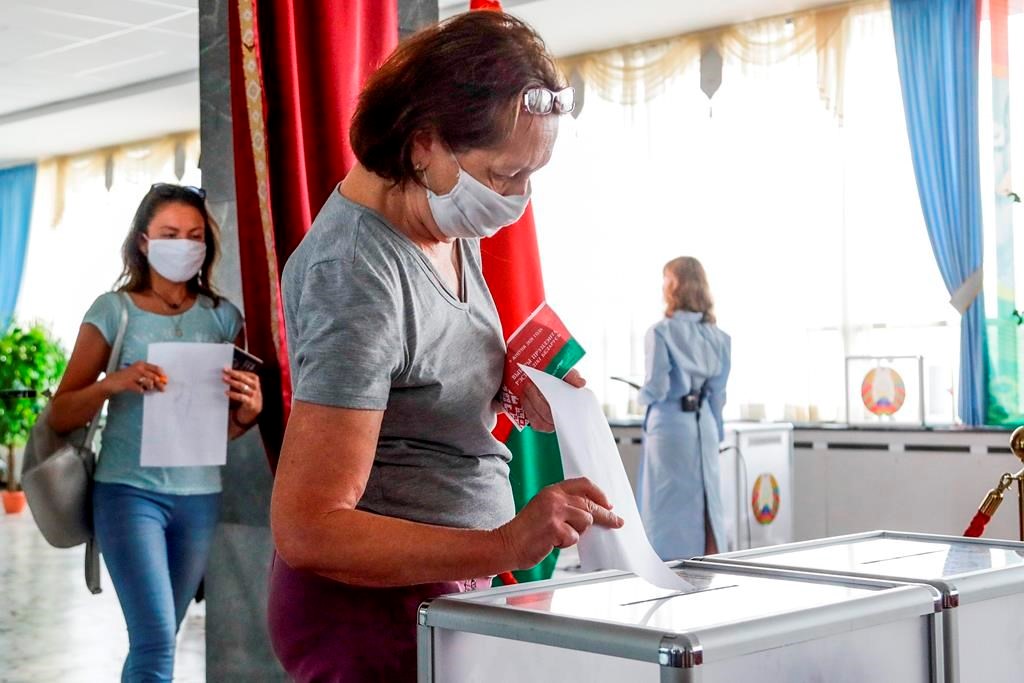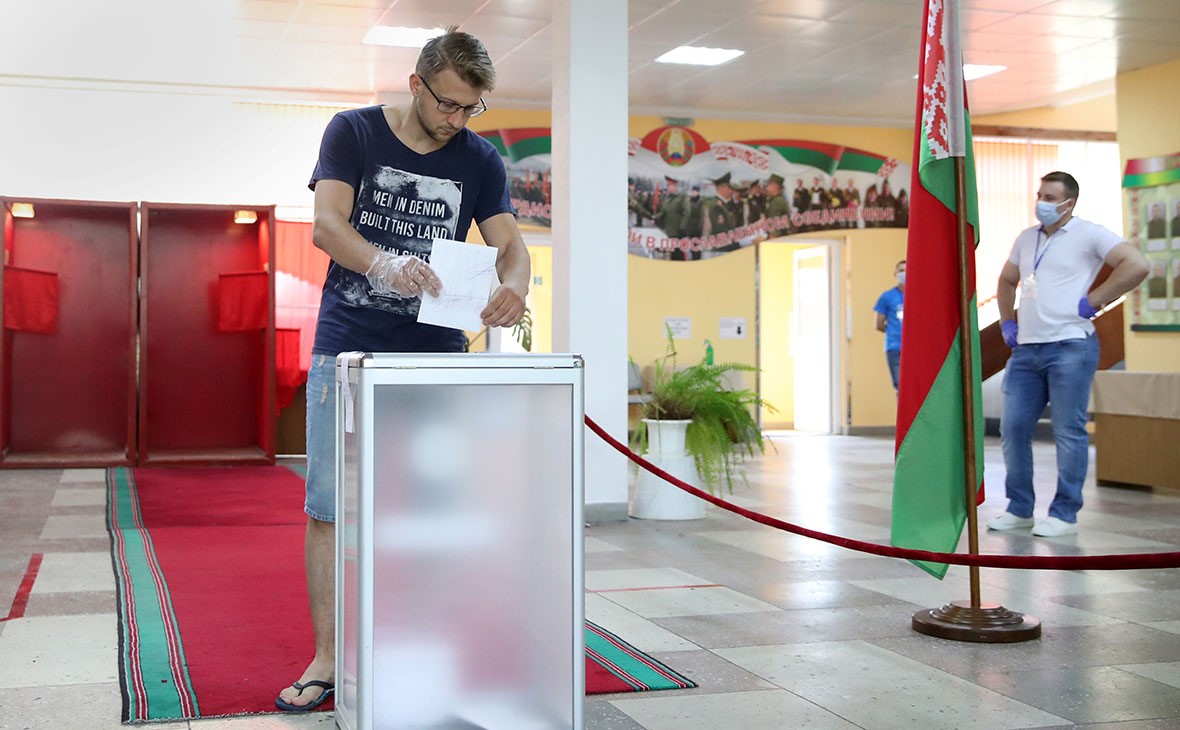
Global Knowledge Network On Voter Education - learning from each other
According to the electoral legislation of the Republic of Belarus, Presidential Elections must be held no later than August 30, 2020. The postponement of the election campaign date is only possible if a state of emergency or martial law is declared in the country on the basis of Article 71 of the Constitution of the Republic of Belarus. Since there are no prerequisites for either of the exceptions, presidential elections in 2020 were scheduled by the Parliament for August 9.
To prevent the spread of coronavirus infection, first of all, the Central Election Commission organized an internet broadcast of its meetings on the official website. This arrangement allowed observers, media representatives, and voters to oversee the adoption of legal acts by the CEC without the need to be present directly at its meetings, and expose themselves to the risk of infection. The same recommendations on the procedure for the holding of meetings were given to the lower territorial commissions and the parent state bodies.
The law stipulates that at least 100,000 voter signatures must be collected in order to nominate a presidential candidate. Signatures are collected through conducting pickets, as well as making door-to-door inquiries. By the decision of the CEC, members of the initiative groups for collecting signatures were required to use personal protection equipment (masks, gloves, and sanitizers).
 In addition, the Ministry of Health of the Republic of Belarus has developed the following recommendations for members of precinct commissions, observers and voters:
In addition, the Ministry of Health of the Republic of Belarus has developed the following recommendations for members of precinct commissions, observers and voters:
- To examine state of health of each member of the precinct commission.. and allow for participating in the work without signs of any respiratory infection (high body temperature, coughing, sneezing, etc).
- to ensure that members of the precinct commission possess and use protective equipment (masks, gloves, face shields if possible), hand and surface sanitizers;
- to ensure that the principle of social distance is respected while placing tables and chairs for members of the precinct commission, seats for observers, room for voters, ensuring a distance of at least 1 meter apart.
- to ensure the availability of skin disinfectants/hand sanitizers in public areas (corridors, halls, etc.), as well as monitoring of regular refilling of dispensers;
- if possible, to separate entering and exiting persons by placing appropriate signs on the floor, doors, or walls;
- to recommend that voters wear personal protection equipment (masks, gloves) when visiting the polling station, as well as use these means when voting at their location (at home) is organized for them. At the request of a precinct commission member, the voter shall move the mask and show the face for the identification;
- to recommend that voters present a document confirming their identity in an unfolded form, to show the necessary pages on their own, without handing the document over to a member of the precinct commission;
- to recommend that voters use their own pens to put a signature acknowledging receipt of the ballot in the list of citizens eligible to vote, as well as to fill in the ballot;
- to ensure that pens are disinfected after each voter;
- to organize regular disinfection of door handles, railings, surfaces in voting booths, tables, etc (at least 6 times during election day). To ensure that the premises where voting is held are wet cleaned during the break from 2 p.m. to 4 p.m. on the days of early voting. To recommend keeping the doors to the voting room and other areas through which voters move open;
- to arrange, where possible, regular airing of the premises (without any interruption of the voting process). To provide for airing during the breaks from 2 p.m. to 4 p.m. on the days of early voting;
- to disinfect the surface of the voting box after the close of voting, as well as when organizing voting at the location of the voter, after visiting each of them;
- if possible, voting at home shall be conducted without entering the residential premises and in compliance with the principle of social distance, keeping a distance of at least 1 meter from each other.
Taking into account these recommendations, and in order to provide members of election commissions with personal protection equipment, the CEC allocated the necessary funds.
In the context of the coronavirus pandemic, the positive aspect is that the electoral legislation of Belarus provides for early voting (within 5 days). It will reduce the number of voters in the voting room on election day and, consequently, reduce the risk of COVID-19 spreading.
 As of August 6, 2020, about 4,300 voters in Belarus are infected with COVID-19, and an even larger number of citizens are in self-isolation (level 1 and 2 contacts that arrived from abroad). In order to exercise the active suffrage of these citizens, the CEC adopted a decision on applying a special voting procedure for them.
As of August 6, 2020, about 4,300 voters in Belarus are infected with COVID-19, and an even larger number of citizens are in self-isolation (level 1 and 2 contacts that arrived from abroad). In order to exercise the active suffrage of these citizens, the CEC adopted a decision on applying a special voting procedure for them.
Voters from this category can vote at the polling station located in a healthcare facility, or on election day at their location (at home). If the voter wants to vote at the polling station, then his delivery and support will be organized by medical workers who are members of the contact groups for the implementation of the medical supervision of patients at home. If a person wants to vote at home, then members of the precinct commission will come to him.
Due to a large number of accredited observers at the polling stations, the CEC was forced to limit the number of simultaneously present in the voting premises in order to maintain social distance between citizens. Thus, during the early voting period, no more than 3 observers can be present in the voting room, and no more than 5 – on election day. Precinct commissions draw up schedules for the presence of observers in the voting premises so that as many observers as possible can perform their functions. This restriction does not apply to international observers, as well as authorized representatives of presidential candidates, deputies of all levels, who also have the right to observe.
There is a separate voting regime at polling stations established abroad. Each diplomatic mission independently determines the procedure and conditions for voting based on the sanitary and epidemiological situation in the host country.
Contributor:
Yahor Jumantayeu
Chief Expert of the CEC
Belarus